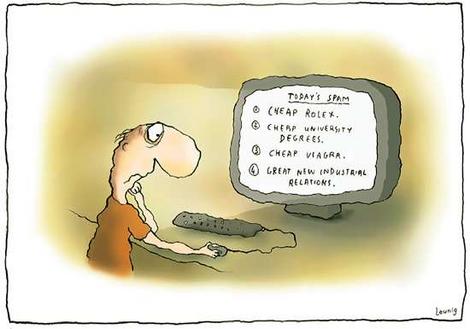Reasons Why Google is indirectly Promoting Negative SEO and Spam
We all know how hard Google has been fighting against spam and SEO malpractice since almost forever! But has it succeeded in doing so? Recently Google launched a new update in its algorithm to promote high quality content and penalize spam – Google Penguin Update (Matt Cutts, Google).
Many groans were heard from across the internet. Lots of high ranking sites lost their rankings overnight. Small businesses that thrived on black hat SEO techniques were penalized and therefore incurred losses. Here is an overview of Google Algorithm Updates since 1998.
The message from Google was loud and clear. Focus on content and get rid of negative SEO techniques to promote your site. Yet, it has been on the receiving end of fierce criticism from experts who believe that Google may be indirectly promoting negative SEO and spam as a result of the Penguin Update.
Surprising though it may be, there is evidence of truth in this particular school of thought. Hence the question now is, how is that possible? How can an update meant to curb negative SEO is actually promoting it indirectly? Here’s how.

Google’s Indirect Promotion of Negative SEO Techniques
Before the Penguin Update, webmasters used negative SEO techniques to promote their sites. Black Hat SEO Techniques helped businesses ensure higher rankings and more traffic to their sites. What they could not do easily was create problems for their competition. Thanks to the changes in the algorithm, businesses have become vulnerable to malicious business practices from their competitors. Click here to read about top 5 white hat and black hat SEO Practices.
Post the Penguin Update, which penalizes sites that violate white hat SEO techniques, competitors can demote rival sites with remarkable ease.
Let Us Examine Some Reasons Why Google is indirectly Promoting Negative SEO and Spam
1) Building Links was never this Easy
Backlinking is considered an unnatural practice and any site guilty of it is penalized by being dropped from the search index. For this reason, building links to other websites has become the easiest method to sabotage a competitor’s website. Imagine that you perceive certain websites you would not choose to associate with are creating unnatural links to your website.
They can do it quite simply by:
- Buying links: Links can be bought from certain businesses that focus on link buying and selling.
- Link Networks: BuildMyRank, LinkVana and other link networks can be used for creating links.
- Spamming links across the internet.
Once your site has been linked, there is very little you can do to save yourself unless you are a big entity and have great terms with Google. The standard recommendation from Google to remove links is to contact the webmaster of the other site concerned. This is equivalent to saying that you have no ways to counter the links as it is nearly impossible to contact webmasters of a site. As you have no control on the links, you cannot remove them. Outrageous as it may seem, your site will further be penalized for backlinks.
2) Paid Links Reports
Backlinks in your website, over which you may have little control, can be analyzed by your competitors and reported to Google as paid links. There is software available on the market that can make your competitor’s job easy such as Majestic, which can be used to seek out links that look similar to paid links. Add to the fact that it is very difficult to determine if a link is paid or not. Therefore, as soon as a paid link report is filed against you, it will go against you even if none of the links on your site are paid ones.
3) Request to Remove In-Bound Links
By far the most creative method of harming your rankings, a competitor can request you to remove certain links from your website by posing as the owner of the links. While the actual parties involves are completely unaware and do the necessary by removing all requested inbound links, the competitor gains rank. As a webmaster, you may want to verify the request to make sure that it is a genuine one. It is, however, not easy to ascertain the origins of the request and yet, you may be forced to oblige and remove the links.
4) Spammy Sites Eventually Win
By ousting the better sites using malicious techniques, spammy sites are eventually going to win. While Google’s focus of remains on high quality content and sharing, business sites are most likely to bear the brunt of the updates. Genuine sites may be penalized even if they adhere to best practices as underlined by the Penguin Update.
Is it possible to fight negative SEO?
Except for big brands, most businesses are sitting ducks to negative SEO attacks from their competitors. Unfortunately, you cannot control negative SEO tactics employed against you unless you have gained lots of trust from Google.
What makes the situation bleaker is the fact that your competitors most certainly will try to destroy competition (read, you) as it makes business sense. Anything for a little profit! The times are definitely going to get tougher. To get acquainted with a few recovery tips. Check out the following:
- Get your site rankings up after Google Penguin Update
- Recover Negative SEO after Google Penguin Update
All this because the changes in Google’s algorithm, that were meant to provide better search results and promote high quality content have ended up doing pretty much the opposite. It is only a matter of time before businesses figure out ways to stay ahead of competition, a grave consequence of which could be, more spam.
As a dominant force on the internet, Google requires to take effective measures to maintain the balance in the web. But for now, there are no indications of any driving changes from the office of the biggest and most popular search engine company, GOOGLE.
So, can nothing be done? Do we sit and wait before we are forced to pull down the shutters on our shop? Or do we go about town pulling down every other shutter except our own? Reactions and questions such as these are looming large.
But the biggest question of all is: Has Google failed in its endeavor to stop spam altogether by promoting it indirectly instead?
Feel free to post your opinions and comments and let us try to answer some of the questions together.



